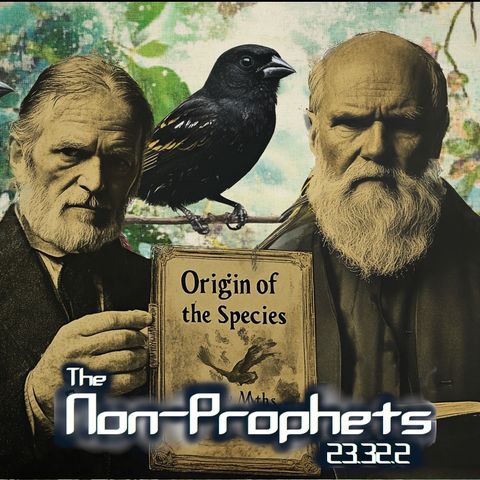Persistent Religious fundamentalism in Schools

Download and listen anywhere
Download your favorite episodes and enjoy them, wherever you are! Sign up or log in now to access offline listening.
Persistent Religious fundamentalism in Schools
This is an automatically generated transcript. Please note that complete accuracy is not guaranteed.
Description
99 years after the Scopes ‘monkey trial,’ religious fundamentalism still infects our schools Los Angeles Times, By Michael Hiltzik, on July 26, 2024 https://www.latimes.com/business/story/2024-07-26/99-years-after-the-scopes-monkey-trial-religious-fundamentalism-still-infects-our-schools Nearly a century ago, a significant...
show moreLos Angeles Times, By Michael Hiltzik, on July 26, 2024
https://www.latimes.com/business/story/2024-07-26/99-years-after-the-scopes-monkey-trial-religious-fundamentalism-still-infects-our-schools
Nearly a century ago, a significant trial unfolded in Tennessee, where the clash between religious fundamentalism and modern education took center stage. This trial, known as the Scopes Trial, ignited a debate that still reverberates today, pitting creationism and intelligent design against scientific understanding in schools. Although the defendant, John Scopes, lost the trial, the broader victory went to science. However, in the contemporary landscape, movements across the United States and abroad continue to push for religious doctrines to infiltrate educational curricula, with some states fighting in courts to uphold restrictive laws that challenge academic freedom.
The Scopes Trial was rooted in a gesture of appeasement. The Tennessee legislature passed a bill prohibiting the teaching of evolution as a symbolic concession to a lay preacher who had otherwise failed to pass any significant legislation. This bill, initially seen as harmless, escalated into a cultural battleground once it was signed into law. The media, both then and now, played a pivotal role in sensationalizing the trial, creating a narrative that often overshadowed the reality. The trial was less about the actual legalities and more about the larger cultural war over how society should balance religious beliefs with scientific progress.
Bad legislation often leads to broader societal issues, including the erosion of public trust in legal and governmental institutions. When laws are poorly conceived or enforced, they invite ridicule and diminish the legitimacy of the legal system. The Scopes Trial is a prime example of how symbolic gestures in legislation can have far-reaching and unintended consequences. The case's outcome hinged on technicalities, with the judge overstepping his authority, leading to a conviction that was later overturned. This maneuver may have been a deliberate attempt to avoid a substantive appeal, which could have set a more significant legal precedent.
The struggle between science and religious dogma in education has a long and ongoing history. Even after the Scopes Trial, states like Alabama and Missouri continued to grapple with similar legal battles, with courts consistently ruling against the inclusion of creationism and intelligent design in public school curricula. These cases highlight the persistent efforts to challenge scientific education in favor of religious teachings, a battle that has spanned decades and remains unresolved.
The trial's media coverage, both during the event and in subsequent portrayals, often exaggerated and distorted the facts, turning the proceedings into a spectacle rather than an accurate reflection of the issues at stake. Films and television adaptations have further muddied the waters, prioritizing entertainment over historical accuracy. This trend of sensationalizing history for media consumption has contributed to the ongoing misunderstanding of the trial's significance and its implications for the relationship between religion and education.
The town where the Scopes Trial took place was largely apathetic about the legal battle, seeing it more as a financial opportunity than a moral crusade. The influx of press and visitors brought by the trial provided a much-needed economic boost to the community. However, the case itself was a poor test of the broader issues, as the local population was not particularly invested in the outcome. Despite this, the trial has become emblematic of the enduring conflict between scientific inquiry and religious belief, a conflict that continues to shape educational policies and public discourse in the United States and beyond.
The Non-Prophets, Episode 23.32.2 featuring Kelley Laughlin, Jonathan Roudabush, and Phoebe Rose
Information
| Author | Atheist Community of Austin |
| Organization | Atheist Community of Austin |
| Website | - |
| Tags |
Copyright 2024 - Spreaker Inc. an iHeartMedia Company
